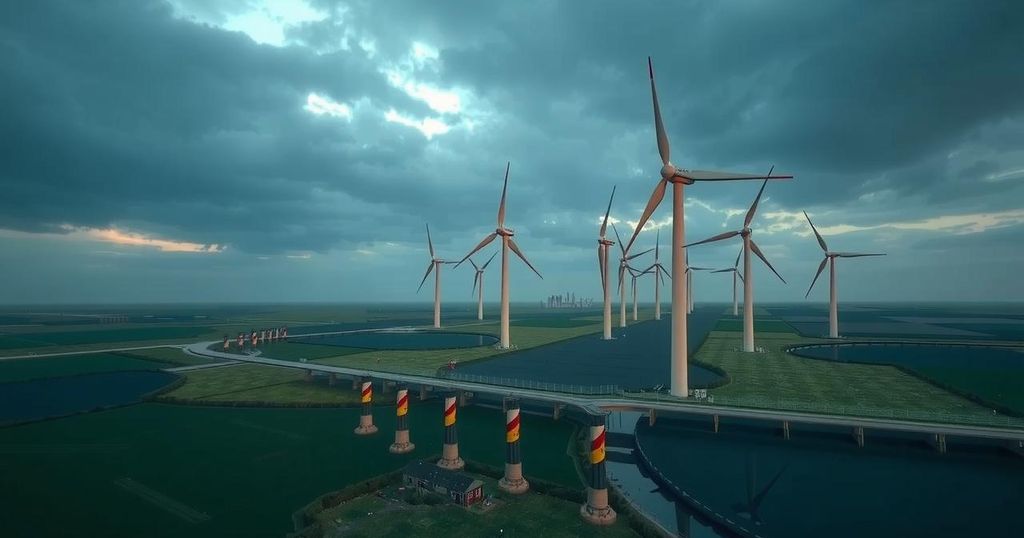Mild weather and increased wind power generation have led to a decrease in gas prices in Dutch and British markets, with prices falling to €39.40 per megawatt-hour and 94.90 pence per therm, respectively. Analysts forecast a slight rise in demand amidst ongoing geopolitical tensions that may affect energy stability.
Recent developments in Europe have resulted in a decline in gas prices in both the Netherlands and the United Kingdom. This trend is attributed to unusually warm temperatures and robust forecasts for wind power generation. The combination of these factors has contributed to a reduced demand for gas, positively impacting key trading hubs within the region. Specifically, the Dutch TTF hub reported a drop in its benchmark front-month contract price to €39.40 per megawatt-hour, while British weekend contracts experienced a decrease to 94.90 pence per therm. Analysts also note an expected incremental rise in gas demand of 88 GWh/d during the forthcoming workweek, driven by consistent gas consumption from power plants over the weekend. Furthermore, there has been a slight reduction in Norwegian gas exports due to extended maintenance schedules. The price differential between Asian and European markets remains steady, which provides minimal encouragement for US LNG exporters. However, the market is not without its challenges; ongoing geopolitical tensions, particularly those involving the Middle East, continue to introduce uncertainty into the energy sector.
This article addresses the current state of gas prices in Europe, focusing on the developments within the Dutch and British markets. The escalation of wind power generation alongside mild weather conditions has notably impacted gas demand, resulting in lower prices at critical trading locations. Understanding these dynamics is paramount, as they highlight the intersection of climate influences and energy pricing within an environment often fraught with geopolitical risks. Given the current atmosphere of declining prices, market participants may need to reassess their strategies in light of not only the climatic factors at play but also the broader geopolitical context.
In summary, the convergence of elevated temperatures and enhanced wind power generation is currently exerting downward pressure on gas prices in Europe, specifically in the Netherlands and the United Kingdom. While this trend might offer some respite for the market, the specter of geopolitical turbulence, particularly in the Middle East, necessitates vigilant monitoring of how such developments may reverberate through global energy supplies and pricing structures. The interplay between renewable energy and traditional gas supplies is evolving, suggesting both opportunities and challenges for stakeholders in the energy market.
Original Source: finimize.com






